Today, young girls are invading Sephora, strutting in with their mother’s credit card clutched in their manicured palm, and walking out with hundreds of dollars worth of viral Drunk Elephant skincare. This new phenomenon of tweens acting like 16 year olds stems directly from social media and receiving phones at early ages. Since social media is now ingrained in society, especially in the younger generation who are getting phones at younger ages, it has warped what the “cool kids” look and act like, subsequently changing all young girls who want to fit in with their peers.
When I was in fifth grade, I did not own a phone or have access to social media, nor did any of my friends. For me, the “cool girls” in my class sold slime after school, could beat the entire grade in handball, and their parents gave them Nutella sandwiches in their lunch boxes. As social media has become more relevant, it has altered how many girls perceive being “popular.” Today, “cool girls” buy Drunk Elephant skincare, can afford popular clothing brands, and post trending videos on social media.
The idea that young girls want to grow up quicker is not a new concept; it is common and normal for adolescents to try to copy their older sisters, cousins, or teenagers, desperately wishing to feel as cool as they look. It is normal for young girls to smear on their mother’s makeup and play dress up in their sister’s mature clothes; however, the difference between this innocent, playful, fun and the new generation is the pressure surrounding it. Some young girls today act as though makeup is a need, a necessity. They need makeup in order to keep up with the trends and beauty standards. Girls as young as 10 feel compelled to wear makeup and buy trendy clothes meant for 16 year olds in order to fit in.
This pressure to grow up stems from the relevance of social media and how it has affected and changed the idea of the “popular girl” in schools.
Grace (age 12) and Rachel (age 10) Castanzo comment on how there is tremendous pressure to wear makeup and trendy clothing, which mainly stems from social media and their friends. Most of their friends, even Rachel who is only in fifth grade, wear makeup to school, have social media, and own a phone.
Grace, who is in seventh grade, already feels uncomfortable without the security and comfort of makeup, especially because of the hurtful comments people make when she is not wearing it.
“They [her friends, teachers, parents] would say, ’Oh wow you look so tired today,’” Grace said.
Furthermore, Grace feels pressure to apply flawless makeup, pick out a trending outfit, and wear a cute hairstyle everyday. She wishes this pressure was not so relevant in her school and society.
“I wish it was a little different so you don’t have to be perfect every second of your life,” Grace said.
Instead of enjoying the freedoms and carefree joys of childhood, Grace, at age 12, feels pressure to be perfect.
It is no secret that adolescents have a natural instinct to fit in and be perceived highly among peers. This innate desire is especially relevant in young people who are still trying to figure out who they are, what they want, and how they fit into society.
Following clothing and makeup trends are a direct reflection of young girls’ yearning to fit in with peers. Trends change as quickly as the tide, so it is almost impossible to always be in style. Once kids gain the trending makeup and clothes, a new trend is already circling, creating a continuous stressful loop in which they are always behind.
Some trending items among tweens (according to Grace and Rachel) include Lulu Lemon tank tops, Drunk Elephant skin care, the Dison, fuzzy socks, and uggs. All of these items have gone viral on Tik Tok, proving how social media is affecting what young girls believe is cool.
Some of these items, like Drunk Elephant skincare, can even be harmful to young kids. Drunk Elephant skincare includes Retinol which is very strong and, when used incorrectly, can severely damage children’s moisture barrier. This can cause their skin to peel off in flakes. According to Yahoo Style, retinal is supposed to be used by adults with acne in their mid-20’s, and can damage children’s skin because their moisture barrier is not developed. Children do not need strong skincare like Drunk Elephant, but they buy it because they see it on social media.
Furthermore, because social media is a highlight reel of everyone’s best moments, young people are now expecting themselves and others to look perfect, and judging those who do not emulate this standard.
Popular girls at Grace’s school “[have] all the makeup products, and wear a perfect outfit everyday to school,” Grace said. “They always look fancy with Lulu Lemon and dresses.” Grace feels compelled to emulate this look of what she calls a “perfect girl.”
The perfect girl in seventh grade “keeps up with everything trendy,” Grace said.
Grace also hears how her friends judge others, continuing to perpetuate this standard of “perfection.”
“Most of my friends will be like ‘Wow their pants don’t match their shirt,’” Grace said.
Furthermore, she feels judged by her classmates when she is not wearing makeup or a cute outfit.
“In your grade they will judge you on everything,” Grace said.
Additionally, the amount of time tweens spend on social media replaces other brain-stimulating and healthy activities. According to Paces Connection, the average daily screen time in tweens’ (ages eight to 12), is between five hours and 33 minutes to four hours and 44 minutes. This excessive screen time pulls children away from normal childish behavior like playing tag, hide and seek, or doing arts and crafts. Young girls are on their phones for hours a day instead of reading a book or having play dates with their friends.
Furthermore, when parents give their children social media, they are unaware of what they watch and how much time they spend on it. Jodie Castanzo, Grace and Rachel’s mom, tried to put time limits on their phone time. She states how their YouTube time limit is for 30 minutes a day but admits how her children can work around the restriction, making their real device time around an hour and a half a day.
Jodi is also unsure of what content her children watch.
“Umm they watch things about makeup,” Jodi said. She was unable to elaborate.
Social media is not only affecting social expectations, but also damaging young girls’ self esteem, which urges them to change how they look with makeup and clothing.
It is no secret that social media has ingrained itself into society, especially in generations Z and Alpha who are getting phones and social media at much younger ages. According to CTRL Care, 90% of teenagers use social media, and the average age when getting a social media account is 12 years old, based on The National Library of Medicine (NIH). When girls as young as 12 get social media, the images and videos they watch will start to mold how they think, especially because tweens have not fully formulated their own identity and options yet.
When young girls receive social media at younger ages, they can start to develop low self esteem, and prompt them to change how they look with makeup and the clothes they wear. When tweens stare at images of older teenagers and influencers who portray an unrealistic beauty standard, they, subconsciously and consciously, start to feel insecure about themselves. It is no secret that social media is connected to eating disorders and can cause mental health issues amongst adolescents. According to NIH, 60% of adolescent girls were actively trying to lose weight and 44% believed they were overweight even though most of these young girls were within normal and healthy weight ranges.
This unhealthy mindset of young girls disliking their bodies can stem from social media. A survey by The School Run proved that looking at pictures of models, pop stars and actresses made a fifth of the young girls feel sad, two-fifths feel bad about themselves and over a tenth feel angry. Furthermore, another survey by the Girl Guides showed that 46% of girls aged 11 to 16 would consider cosmetic surgery and that girls started to dislike their appearance as early as 10.
Instead of 10 year olds enjoying the freedoms and joys of childhood, they are concerned about what they look like and if they fit into societal beauty standards, causing them to grow up quicker with the belief that their worth is tied to what they look like.
There is tremendous freedom and joy in childhood. Instead of giving kids phones and social media at early ages, let them stay young for as long as they can. Preserve games of tag, joyful laughter, and long days out in the sun.



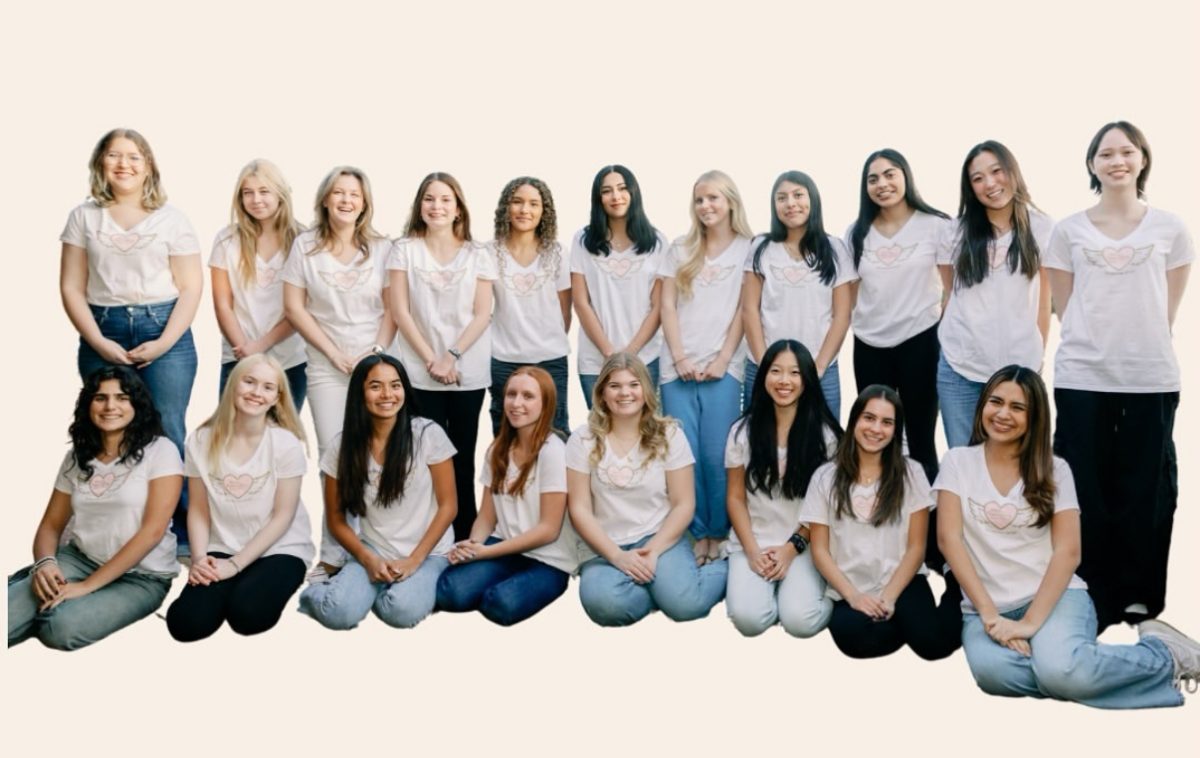
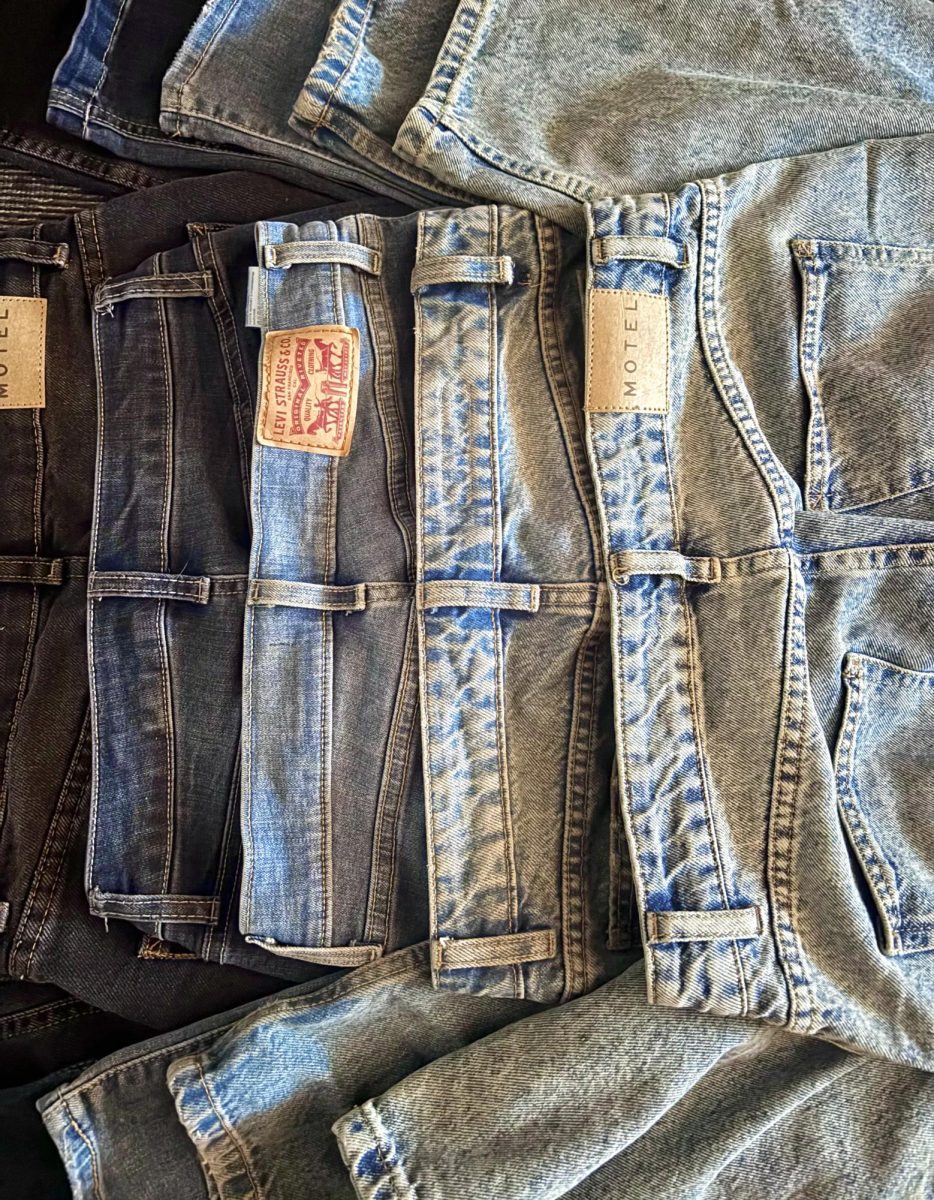















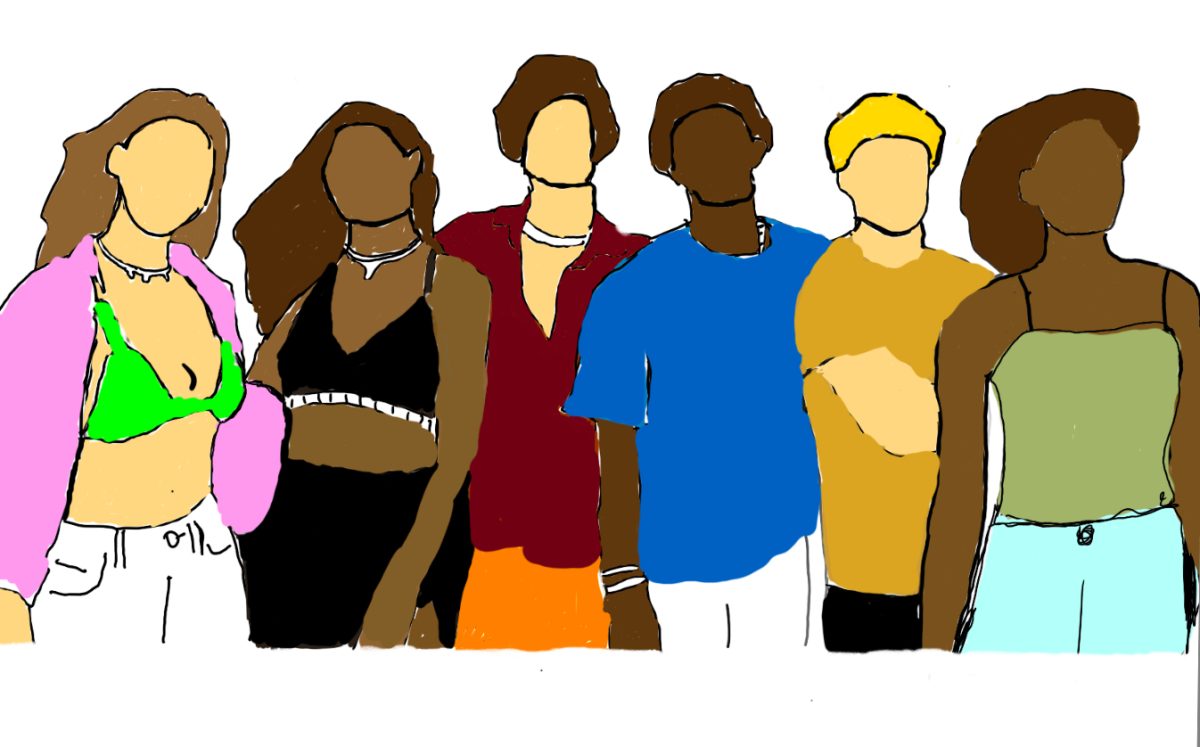
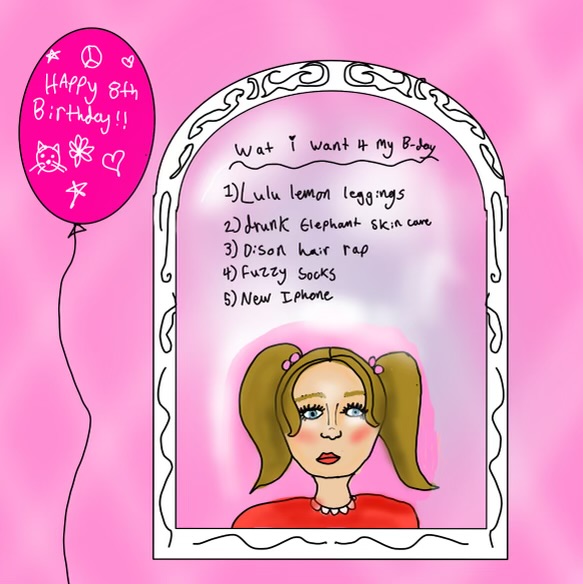




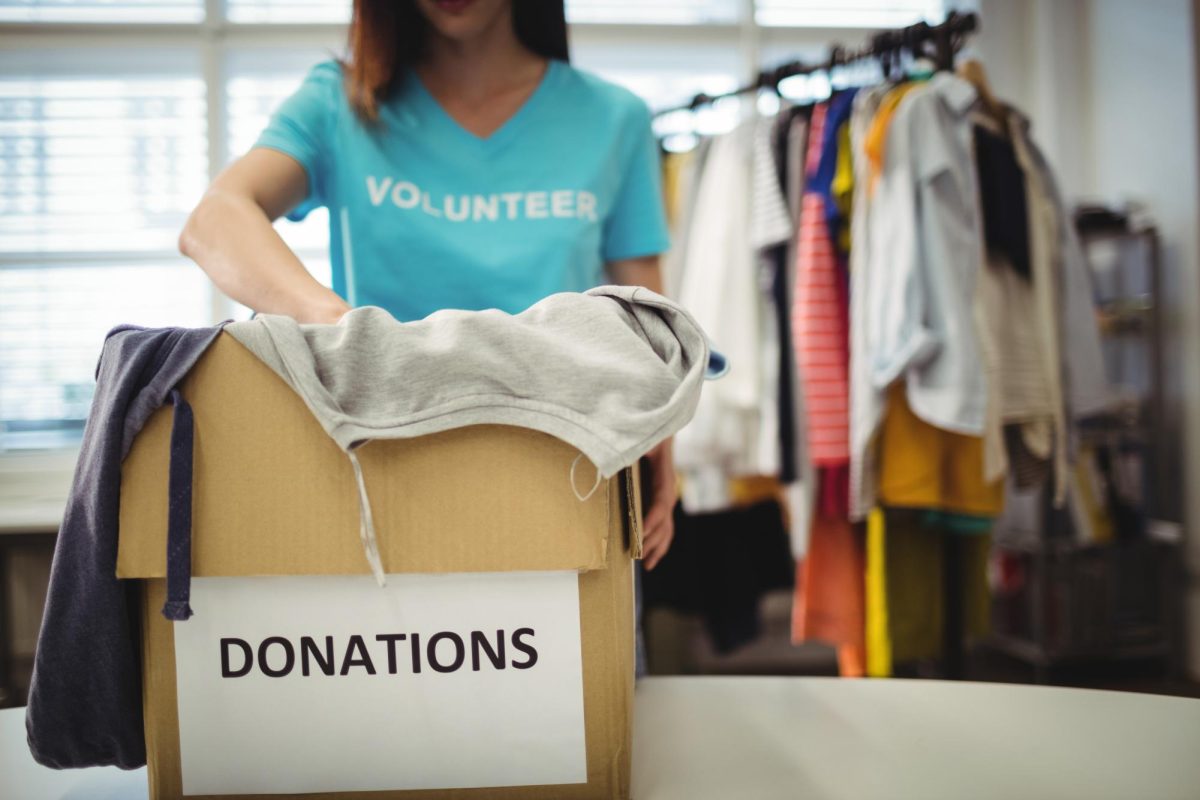





Baharestan Rebekah W. • Mar 22, 2024 at 5:28 pm
Astute and elegant albeit alarming observations in this piece. I too, as an older woman have stood aside (actually pressed backwards into a wall by the onslaught of giddy girl gaggles) while observing the awkward panic of groups of 12 year olds at Sephora. I knew then that I was witnessing something like a new three headed monster – all of which you eloquently name in this article .